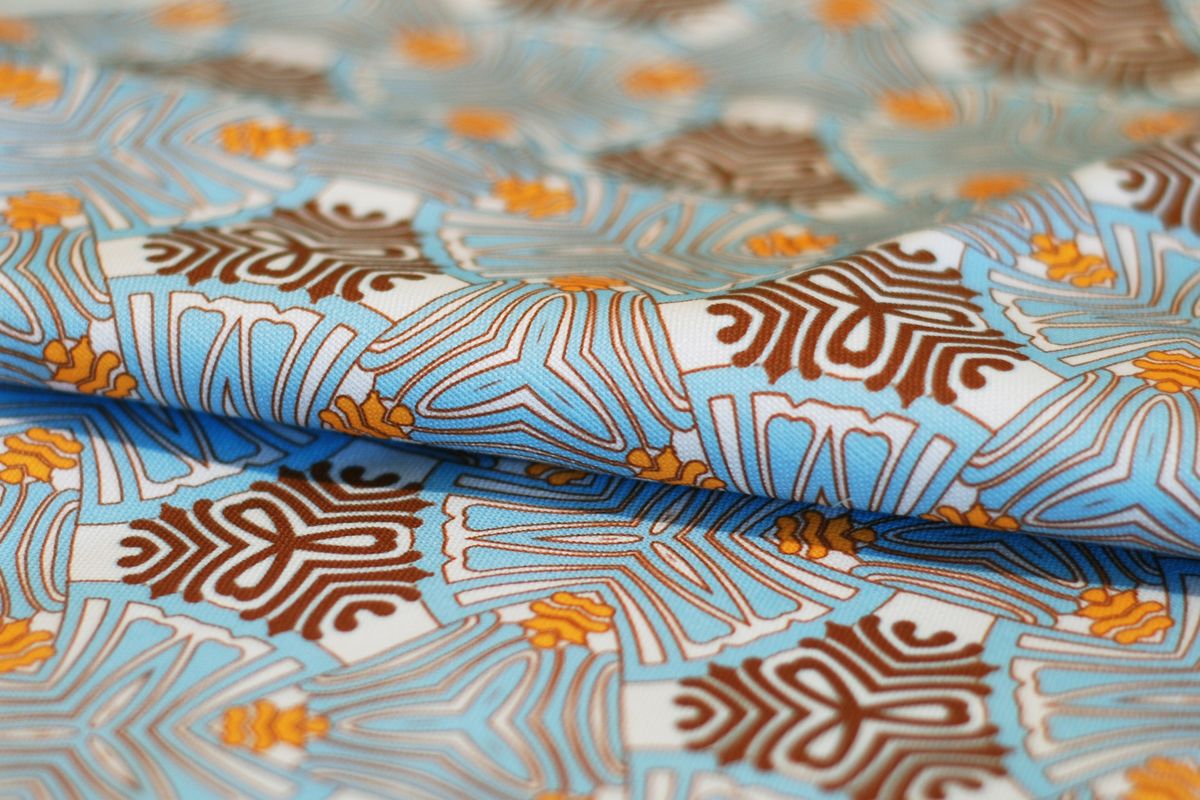Fabric of reality for crafters
With new technology, it’s now possible to design, print your own custom fabric

For crafters, this is revolutionary stuff: It’s now possible to design and print your own fabric.
New technology makes it possible for emerging designers, artists and crafters to make affordable, small-run printings of their work.
“Basically, this is for anyone who wants a custom fabric,” said Scott Jeffreys, president of Raleigh, N.C.-based Karma Kraft, one of a handful of digital fabric-printing companies.
“Some of the crafters and the designers are doing their own collection of pillows or handbags with us.”
The process is as simple as uploading a design onto a Web site, and letting the printing company walk you through the ordering process.
The first such company to hit the scene, in October 2008, was Spoonflower, based in Mebane, N.C.
Karma Kraft launched its services six months ago. Fabric on Demand, near Los Angeles, offers similar, DIY fabric-printing services.
“Once you do it once or twice, you understand the knack of the whole thing,” said artist Patricia Thornton, who has tried both Karma Kraft and Spoonflower’s design services.
Customized fabric doesn’t come cheap. But the higher cost means higher-quality fabric.
“Is the fabric I buy from Spoonflower more expensive? Yes, it’s twice or three times as expensive, and I don’t care,” said Cameron Blazer. “It’s a reminder to me to be choosy about what I get.”
Blazer, a 34-year-old lawyer and mother who blogs about her passion for crafting at Cottage Industrialist, calls Spoonflower “the new Etsy,” the online shopping site for handmade goods.
“What Etsy did for a lot of people, it gave them a proving ground to determine, ‘Is this something I can do with my life?’ ” said Blazer, of Charleston, S.C.
“Spoonflower does the same thing. There is incredible satisfaction to see something you’ve done in three-dimensional, tactile space.”
What began as a lark has led to sideline work for Blazer, who now designs fabrics for other crafters.
Thornton began printing her abstract paintings a few months ago onto Karma Kraft’s silk fabric and found the printed scarves “absolutely gorgeous.”
The 65-year-old retired design-school administrator launched a company, Miatela Studio, from her home in New Bedford, Mass.
She peddles her color-charged scarves at arts and crafts shows and in high-end art galleries. It has given retirement an unexpected twist.
“It’s very interesting,” said Thornton, who retired in June. “In August, when I thought I was going to the beach, I wasn’t. I was busy working on designs.”
Spoonflower uses non-toxic inks to digitally print on six types of cotton fabric at its North Carolina headquarters. Orders are shipped in four days to a week from when a customer hits the send button on an online order.
Karma Kraft uses traditional fabric dyes and digitally prints on a multitude of fabrics at a factory in Hangzhou, China. It, too, can turn an order around in about a week.
Spoonflower and Karma Kraft also offer additional services. Customers can sell their fabric designs to other crafters through Spoonflower, whereas Karma Kraft offers cut-and-sew services (examples include handbags, pillows and shopping totes).
Thornton thinks Spoonflower’s services are better tailored for quilters and crafters, while Karma Kraft is better suited for those who need a more specialized fabric, such as silk.